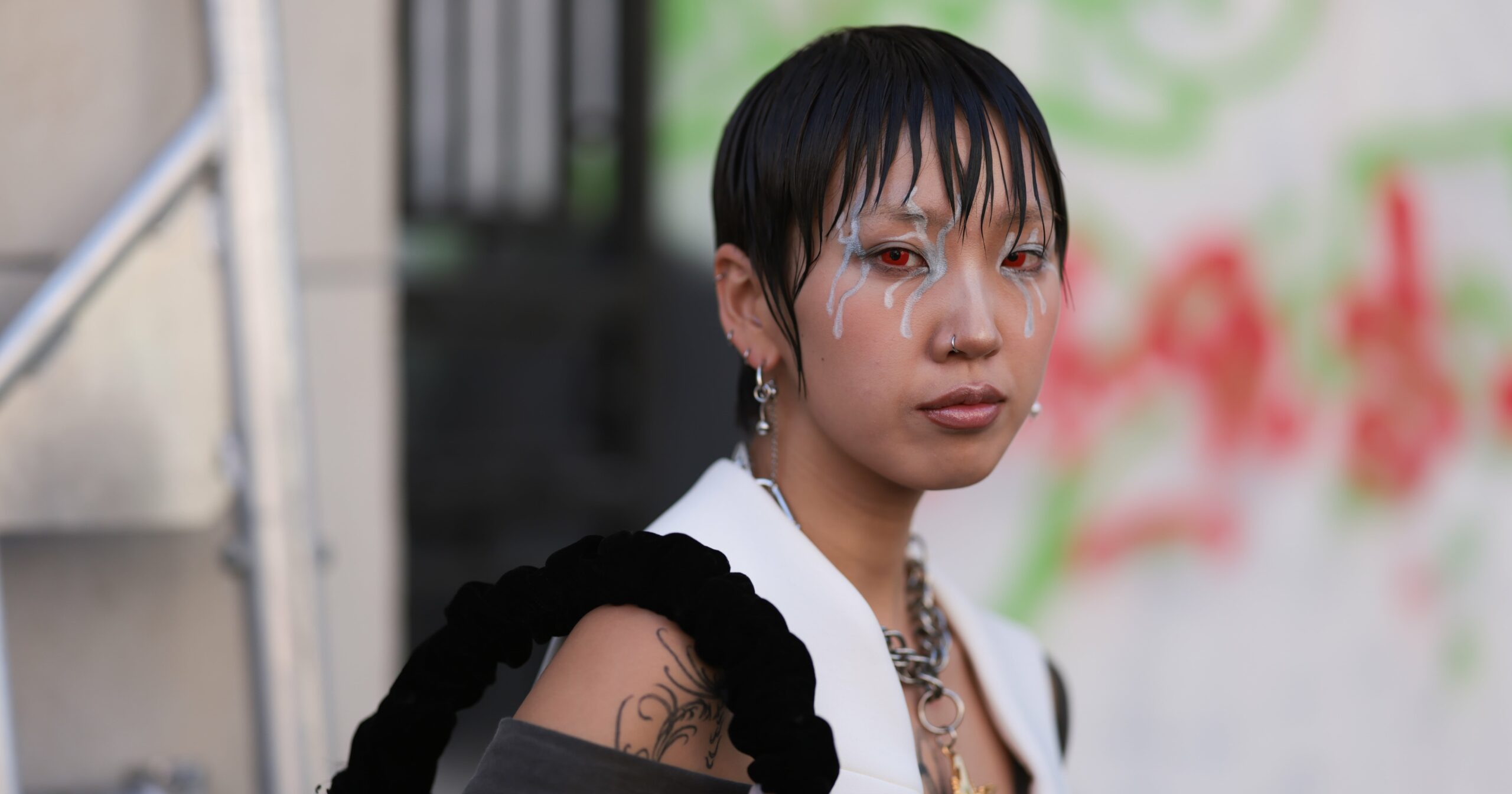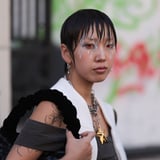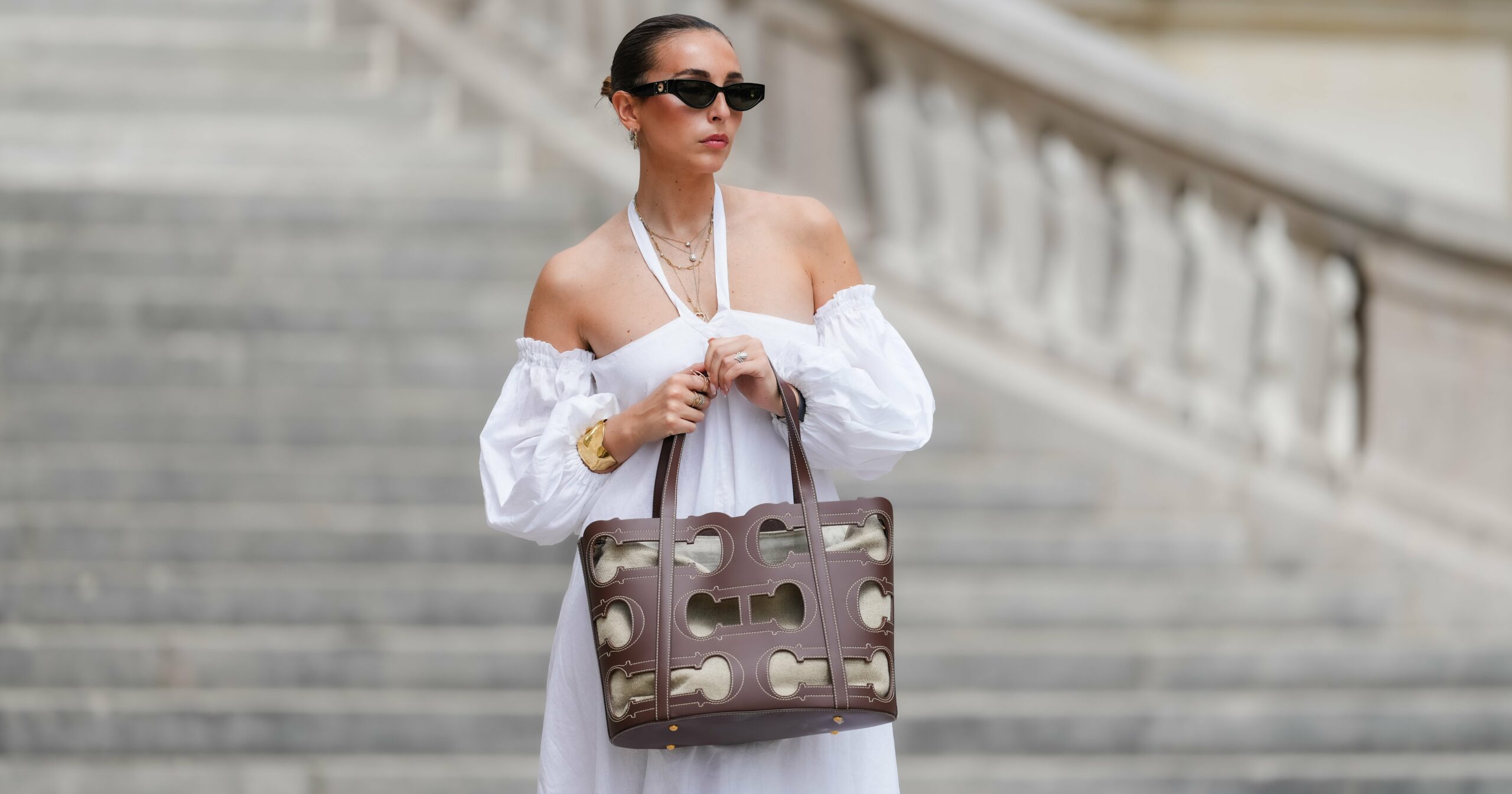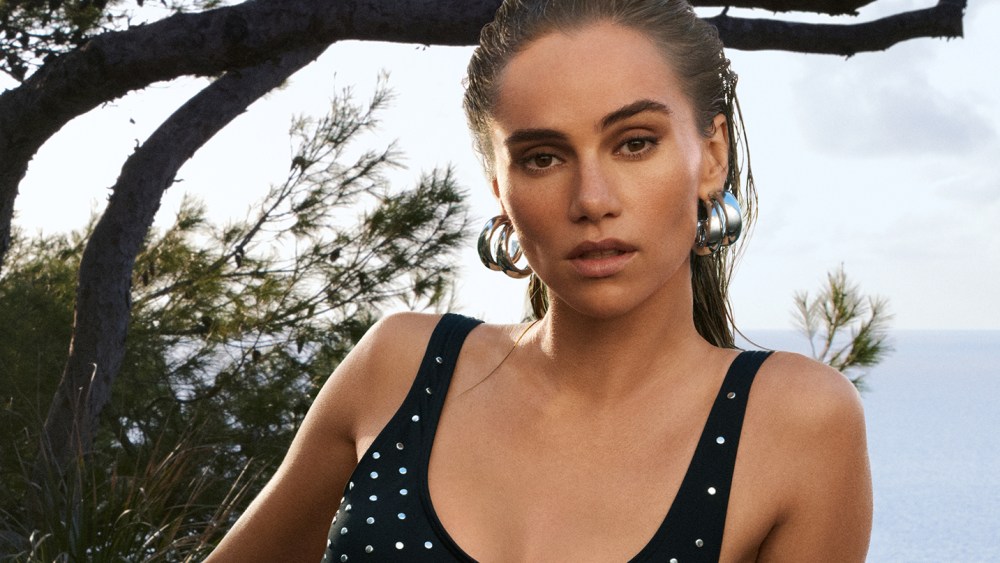Image Source: Getty/Jeremy Moeller / Contributor
When one beauty trend gets popular, it’s almost a given that the complete opposite tends to trend as well. For example, when curtain bangs and mermaid waves started to shine in 2021, the blunt bob also began to have its moment. With the rise of “no-makeup” makeup, grungy, indie-sleaze looks have also begun to appear in the zeitgeist. Clean girl nails were immediately followed by the 3D craze. The entire phenomenon has existed for quite some time, colloquially dubbed the “anti-beauty” trend.
“When a dominant beauty trend becomes pervasive, some people want to rebel against it by
embracing an alternative look that sets them apart,” Carolyn Mair, cognitive psychologist and author of The Psychology of Fashion ($13), tells POPSUGAR. “Their rebellion can be due to a desire to express their individuality and non-conformity, as well as demonstrate that they like to go against the grain.”
On the one hand, people can just like what they like. Maybe shorter hair suits your face shape, or you’re a full-glam makeup lover through and through. Still, the anti-beauty space is one that has existed for ages. Folks were once vilified if they dared step foot out of line (Britney Spears for shaving her head and Pamela Anderson for sharing her plastic surgery experience in the mid-2000s). But now, the acceptance of anti-beauty has slowly started to shift, and brands are taking notice. “Consumers increasingly seek products and marketing that reflect a broader range of beauty standards and embrace authenticity.” Dr. Mair says. “Therefore, the commodification of anti-beauty ideals by brands reflects the evolving nature of the beauty industry and its ability to adapt to changing consumer preferences and values.”
@a.nh_n especially at a college party
Acne dots, maximalist blinged-out nails, and bold hair colors all aim to subvert the notion that clear skin, eternal youth, and a minimal “I woke up like this” attitude are the standard beauty practices to chase. Despite anti-beauty having a moment, antiquated beauty rules are still prominent. On TikTok, people share how badly they want to post fun “get ready with me videos” but are terrified of bullying. Others on the platform say they’ve felt pretty until they’re in the presence of someone who does fit these dominant beauty norms (typically white, blond hair, and blue-eyed).
Antiquated beauty standards will likely always remain the popularity of anti-beauty trends has created one of the better periods for the beauty community. Now, more than ever, we recognize people pushing back against beauty norms like Lil Kim, Florence Griffith Joyner, and more, and are retrospectively honoring them for being tastemakers. “The increasing push for originality and self-acceptance in the beauty space is a reaction to the harmful and unrealistic nature of traditional beauty standards perpetuated by the media and advertising,” Dr. Mair says. “When certain beauty ideals become saturated . . . people will seek alternatives that allow them to express their uniqueness.”
How you approach your beauty routines should be your choice alone. Whether you’re into beauty minimalism, believe in plastic surgery, or fall somewhere in between, you should navigate this journey for yourself and your own mental well-being. You don’t have to fit some arbitrary standard created by misogynists from eons ago. Use the current anti-beauty movement to lean into whatever aesthetic you feel like – “beauty ideals” be damned.




